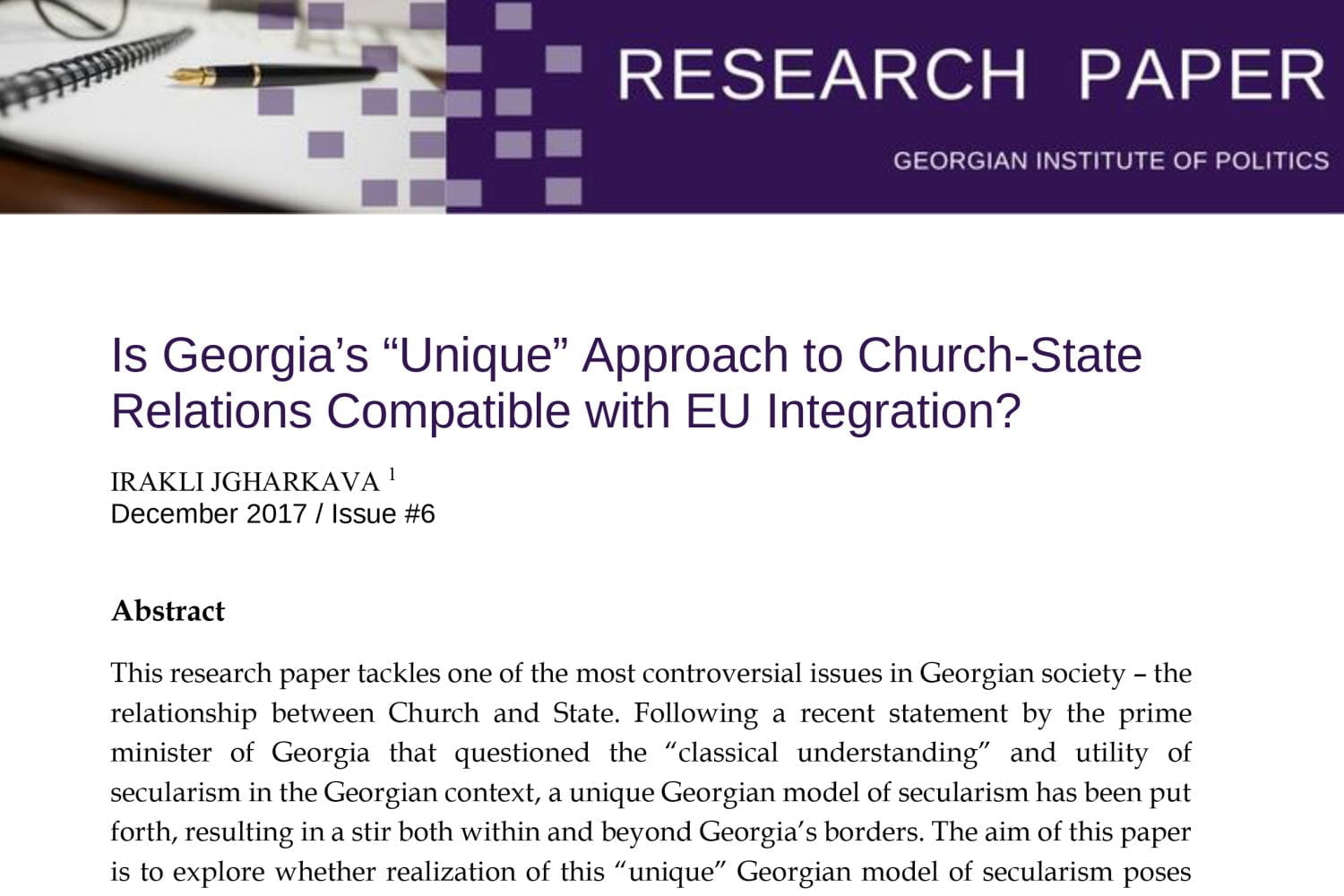2017-12-01 21:52:32
This research paper tackles one of the most controversial issues in Georgian society – the relationship between Church and State. Following a recent statement by the prime minister of Georgia that questioned the “classical understanding” and utility of secularism in the Georgian context, a unique Georgian model of secularism has been put forth, resulting in a stir both within and beyond Georgia’s borders. The aim of this paper is to explore whether realization of this “unique” Georgian model of secularism poses any threat to the country’s European integration aspirations.
To highlight the diversity of approaches to secularism within the EU and its candidate countries, case studies of member countries France and Poland are analyzed along with that of Serbia, an EU candidate country. These case studies help illustrate the EU’s position(s) on secularism and provide insight into whether the Georgian administration’s formulation of a unique Georgian model of secularism is compatible with EU standards. Based on the case studies Poland and Serbia, it seems the EU does not have strict guidelines when it comes to Church-State relations in spite of its clear adherence to secular principles. However, the paper argues that discrepancies from secularist principles could still create problems for Georgia in its attempts toward European integration.



